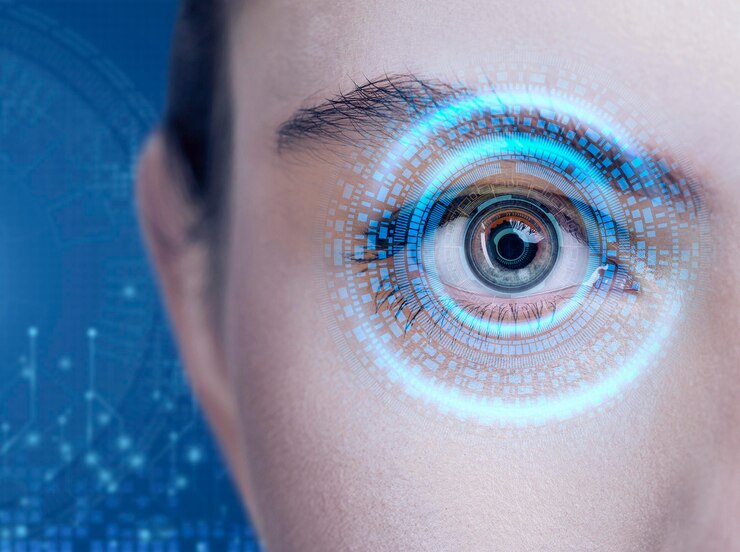Table of contents
With the increasing popularity of natural remedies, many people are turning to cannabidiol (CBD) for more than just stress or pain relief. One of the emerging areas of interest is how CBD may help protect your eyesight. While scientific research is still developing, early studies and anecdotal evidence suggest that CBD may offer several benefits for eye health by reducing inflammation, supporting nerve function, and preventing damage from oxidative stress.
In this article, we’ll explore how CBD may protect your eyesight, what current studies say, and key considerations before including CBD in your eye care routine.
Understanding Eye Health and Vision Loss

Our eyes are exposed to constant strain, UV radiation, and environmental toxins. Over time, these factors can contribute to vision problems such as:
- Glaucoma
- Age-Related Macular Degeneration (AMD)
- Diabetic Retinopathy
- Cataracts
- Retinal Ischemia
Each of these conditions involves inflammation, nerve damage, or oxidative stress—all areas where CBD has shown potential therapeutic effects.
How CBD Interacts with the Eye

CBD influences the endocannabinoid system (ECS), which plays a role in regulating various body functions, including pain, inflammation, and immune responses. The eye has its own endocannabinoid receptors, especially in the retina and optic nerve. When CBD interacts with these receptors, it may help reduce inflammation and oxidative damage, two major contributors to vision loss.
CBD’s neuroprotective properties also mean it could protect the optic nerve and retinal cells from degeneration, helping to preserve vision over time.
Ways CBD May Protect Your Eyesight

1. Reducing Inflammation
Chronic inflammation in the eyes can contribute to conditions like uveitis and AMD. CBD’s anti-inflammatory properties may help reduce swelling and discomfort in sensitive eye tissues.
2. Combating Oxidative Stress
CBD is a powerful antioxidant, which means it can neutralize free radicals that damage cells in the retina. This may slow the progression of degenerative eye diseases.
3. Supporting Retinal Health
Animal studies have shown that CBD may protect retinal neurons from ischemic damage—caused by restricted blood flow—potentially preserving sight.
4. Protecting Against Diabetic Retinopathy
For those with diabetes, CBD may help by reducing inflammation and oxidative stress in retinal tissues, both of which contribute to diabetic vision problems.
5. Potential Role in Glaucoma Management
While THC has been shown to reduce intraocular pressure (IOP) in glaucoma patients, the effect of CBD is more complex. Some studies suggest it could increase IOP, so caution is advised. However, its neuroprotective effects may still offer long-term benefits.
Best Ways to Use CBD for Eye Health

If you’re considering CBD to protect your eyesight, the most common and safest methods include:
- Sublingual CBD oil (under the tongue)
- CBD capsules or softgels
- Edibles with known dosages
- Topical creams (not for direct eye use, but for surrounding skin)
Avoid applying CBD directly into your eyes unless it is a clinically tested product specifically designed for ophthalmic use.
Important Considerations
- Always consult an eye care professional before using CBD, especially if you have glaucoma or take medications.
- Start with a low dose and monitor any changes in vision or eye comfort.
- Choose high-quality, third-party-tested products to ensure purity and safety.
- Do not replace prescribed medications or treatments with CBD without medical advice.
FAQs About CBD and Eye Health
CBD isn’t a cure for vision problems, but it may help slow disease progression and protect eye tissues from damage.
For most people, yes—when used responsibly and not applied directly into the eyes. However, speak to a doctor before beginning long-term use.
Some products exist, but they are not FDA-approved. Be cautious and ensure they are ophthalmologist-recommended before using.
Unlike THC, CBD may raise IOP in some individuals, so it’s not typically recommended for glaucoma unless advised by a professional.
Results vary. Some people notice reduced inflammation or eye strain within days, while protective benefits develop over longer periods.
Final Thoughts
While more clinical studies are needed, early findings suggest that CBD has potential to protect your eyesight by targeting the underlying causes of many eye diseases. Its anti-inflammatory, antioxidant, and neuroprotective properties make it a promising supplement for supporting long-term visual health.
However, it’s crucial to approach CBD use for eye health with caution, informed research, and medical guidance. As science continues to evolve, CBD may soon become a standard part of eye care for those looking to preserve their sight naturally.





